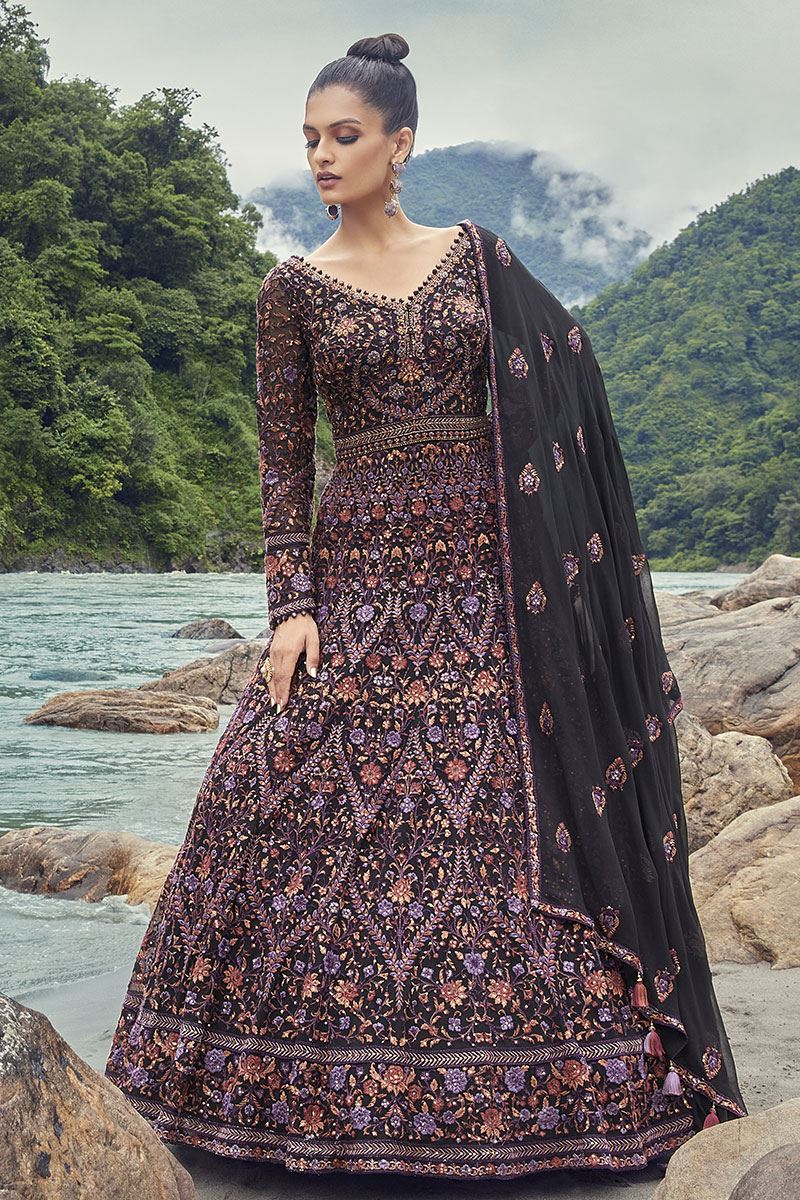Indian Anarkali suits are traditional ethnic attire popular in India and among Indian communities around the world. They are named after Anarkali, a legendary courtesan from the Mughal era. Anarkali suits are characterized by a long, flowy, and flared kurta (tunic) that extends to the ankle or floor, paired with fitted bottoms like leggings or churidar (skinny pants).
Here are some key features and details about Indian Anarkali suits:
-
Design and Silhouette: Anarkali suits are known for their voluminous and flared silhouette. The kurta features multiple pleats and panels that create a graceful and princess-like appearance. The lower portion of the kurta can have various styles, such as straight-cut, A-line, or asymmetric hemlines.
-
Fabrics: Anarkali suits are available in a wide range of fabrics, including silk, chiffon, georgette, net, velvet, cotton, and more. The choice of fabric depends on the occasion and personal preference. Lighter fabrics like chiffon and georgette are popular for casual or semi-formal wear, while silk and velvet are favored for formal or festive occasions.
-
Embellishments: Anarkali suits are often adorned with intricate embroidery, zari work, sequins, beads, stones, or mirror work. These embellishments can be found on the neckline, cuffs, hemline, and overall body of the Anarkali suit, enhancing its beauty and elegance.
-
Neckline and Sleeves: Anarkali suits offer a variety of neckline options, such as round, V-neck, sweetheart, or high neck. The sleeves can range from full-length to three-fourth, half, or even sleeveless, depending on the design and personal preference.
-
Dupatta: Anarkali suits are typically worn with a matching or contrasting dupatta, which is a long scarf or shawl. The dupatta can be draped in various ways, such as casually over one shoulder, pleated and wrapped around the neck, or stylishly pinned to the side.
-
Occasions: Anarkali suits are a popular choice for various occasions, including weddings, festivals, parties, and cultural events. They are considered formal attire in many Indian regions and are often worn by women as bridal wear or for special celebrations.
-
Styling: Anarkali suits can be styled with traditional Indian jewelry, such as statement earrings, bangles, and a necklace. They can be further accessorized with a maang tikka (forehead ornament) and a clutch or potli bag. Footwear choices can range from heels to flats, depending on personal comfort and the occasion.
Anarkali suits have evolved over time, and contemporary designers experiment with different cuts, fabrics, and embellishments to create unique and modern variations while preserving their traditional charm. They are cherished for their timeless appeal, regal aesthetics, and graceful feminine silhouette.


 +1 323 315 2595
+1 323 315 2595  +44 11621 61404
+44 11621 61404 
 shopping bag
shopping bag








